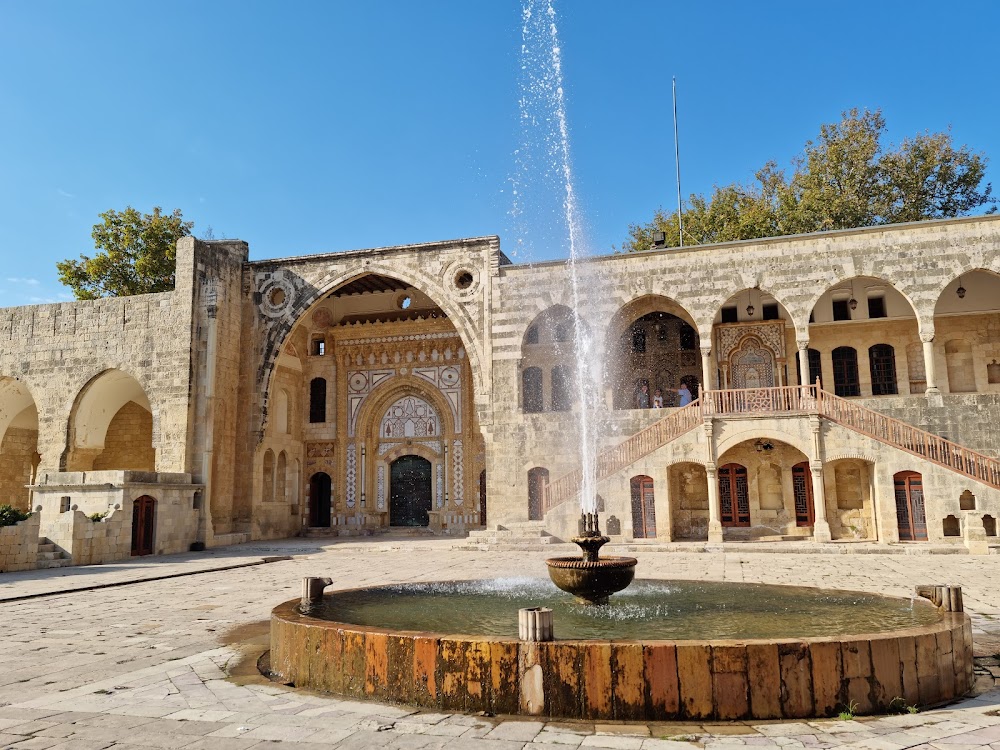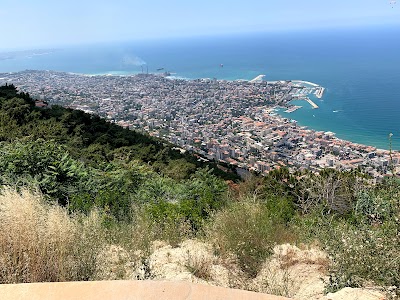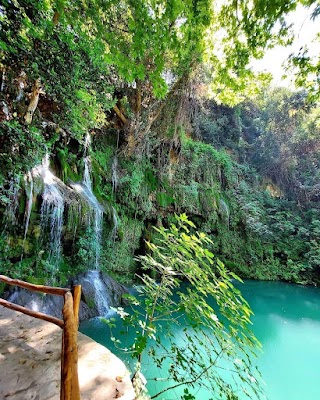Moukhtara Palace (قصر المختارة)
Related Places
Overview
Moukhtara Palace is a remarkable emblem of history and heritage nestled in the heart of Mount Lebanon. This iconic structure not only exemplifies the architectural brilliance of centuries past but also serves as a living testament to the social and political upheavals that have shaped Lebanon over the years.
Constructed in the 18th century by the influential Jumblatt family—one of the most prominent Druze clans in the region—Moukhtara Palace symbolizes their enduring legacy and significance within Lebanon’s rich tapestry of history. The palace stands as a reminder of the family's power and its deep-rooted connection to the area.
With its characteristic stone and masonry techniques, Moukhtara Palace showcases the traditional Lebanese architectural style. Visitors are greeted by elaborately arched doorways, expansive courtyards, and intricately decorated ceilings. The palace's thoughtful layout reflects the hierarchical social norms of its time, featuring designated rooms for receiving guests, family quarters, and spaces for daily domestic activities.
Surrounding the palace are lush gardens and terraces that offer breathtaking views of the picturesque valley below. These gardens exemplify the harmony between architecture and nature, a recurring theme in Lebanese design. With orchards and fountains integrated into the landscape, the estate exudes a serene atmosphere that invites relaxation and contemplation.
Throughout the centuries, Moukhtara Palace has been the backdrop for numerous significant events. It served as the headquarters for the Jumblatt family during major conflicts, including the 1860 civil war between the Druze and Maronites. Its fortified design and commanding views made it a strategic location during these turbulent times.
In the 20th century, the palace became the residence of Kamal Jumblatt, an influential political figure and founder of the Progressive Socialist Party. His leadership and contributions to Lebanese politics have left an indelible mark on the country’s history, making the palace a symbol of modern political thought and activism in Lebanon.
Today, Moukhtara Palace remains a private residence for the Jumblatt family, with Walid Jumblatt and his son Taymour continuing to call it home. While it retains its private status, the palace graciously opens its doors to guests and dignitaries, reflecting the Lebanese tradition of hospitality. The combination of historical significance and architectural beauty makes Moukhtara Palace a captivating destination for those eager to explore Lebanon’s rich cultural heritage.
Behind the towering walls and beyond the ornate gates of Moukhtara Palace lies a narrative of resilience, power, and legacy. The meticulous craftsmanship evident in the palace's construction serves as a reminder of an era where aesthetics and functionality were harmoniously intertwined. The materials and building methods employed have enabled the palace to withstand the test of time and the elements, ensuring its preservation for future generations to admire and respect.
Moukhtara Palace is not just an architectural marvel; it stands as a symbol of the enduring spirit of the Lebanese people and the profound history of Mount Lebanon. Through its weathered stones and storied halls, the palace invites each visitor to step into a vivid history lesson, narrating tales of the past that continue to resonate today.









